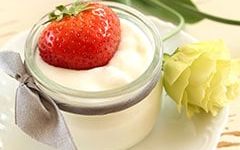How your diet affects your dental health
How your diet affects your dental health
What you eat and drink is important to your dental health, and brushing twice a day isn’t enough to deal with a poor diet. It’s vital to ensure you’re consuming the right foods and absorbing important nutrients to help your oral health stay on track.
If you are unwell or have a chronic condition such as diabetes, maintaining a healthy diet is even more essential. People with diabetes have a lowered resistance to infection and hence, a higher risk of gum disease. When it comes to keeping your teeth healthy, what you eat is just as important as what you avoid. Choose teeth-friendly foods as part of your everyday diet and practice good oral health daily.

What foods help your teeth?
Everyone knows children need plenty of calcium for growing healthy bones and teeth, but it doesn’t stop when you’ve grown up. Calcium helps strengthen and repair damaged enamel, and keeps your teeth healthy. If you don’t like consuming a lot of dairy products, you can get calcium from a variety of plant-based foods or your doctor can advise on calcium supplements.
A healthy diet should also include plenty of vegetables and fruit, with complex carbohydrates such as grain breads to give you energy for longer. Instead of snacking on sweet treats, try cutting up raw crunchy vegetables which are both delicious and nutritious. Fatty fish, like salmon, are also great for your teeth as they are sources of vitamin D. Always be wary of too much takeaway with sweet, sticky sauces and dressings.
Try to limit your treats
It’s ok to enjoy a treat once in a while but remember, everything in moderation. Those sweet snacks you grab from the supermarket or café are not just giving you a boost, they’re also revitalising the bacteria in your mouth and decaying your teeth. Keep in mind that certain kinds of sweets can do more damage than others. Chewy sweets spend more time sticking to the surface of your teeth which means they give your teeth a longer “sugar bath”.
If you eat sugary treats, try to do so after a main meal when you brush your teeth, instead of several times a day. Try packing your lunch for work or school and adding in some healthy nibbles like raw vegetables, nuts, cheese and crackers. Your teeth will thank you, and so will your wallet.
What food and drink stain your teeth?
If you’re noticing your teeth looking a little more yellow than usual, it might be your daily coffee or tea habit. Or possibly those glasses of red wine with dinner! All those beverages are well known “teeth stainers” so it’s important to limit your intake and rinse your mouth out with water after drinking them.
There are also certain foods that can discolour your teeth such as red pasta sauce, curry powder, balsamic vinegar, coloured sweets / candies and berries. If you can’t give up the coffee habit or cut back on these foods, then you can always speak to your Apple Dental practitioner about teeth whitening for a natural brighter looking smile.
A source of mouth-healthy nutrition
Yoghurt is a great food for dental health because it is high in calcium which helps to strengthen bones and teeth and it contains plenty of protein.
Research has also shown yoghurt could help to protect against gum disease. Gum disease develops when harmful bacteria build up on teeth surfaces as plaque. This will eventually harden into calculus which causes infection and inflammation in the gums. Eating more yoghurt helps to interrupt the growth of these unfriendly bacteria. Apparently, this is because yoghurt contains good bacteria called probiotics. Probiotics are live cultures found in dairy products including milk, kefir and yoghurt. Eating yoghurt every day could also help to keep your breath fresh because the bacteria in yoghurt help to fight odour-causing bacteria in the mouth.
When choosing your yoghurt, be sure to pick sugar-free varieties for maximum health benefits. If you do want to sweeten your yoghurt, why not add fresh seasonal fruit?


